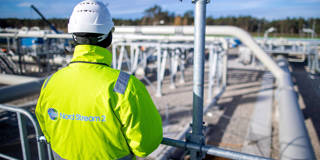How to Reduce Putin's Leverage Over Europe
The crisis in Ukraine has made clear that, despite all the talk about “strategic autonomy,” the EU remains heavily dependent on US security guarantees. While this will not change any time soon, Europe can at least increase its capacity to deploy the few soft-power instruments it has.

BRUSSELS – With the United States leading the effort to prevent a Russian invasion of Ukraine, European Union officials are wringing their hands. Europe is not only absent from the table, they complain; its security is on the menu.